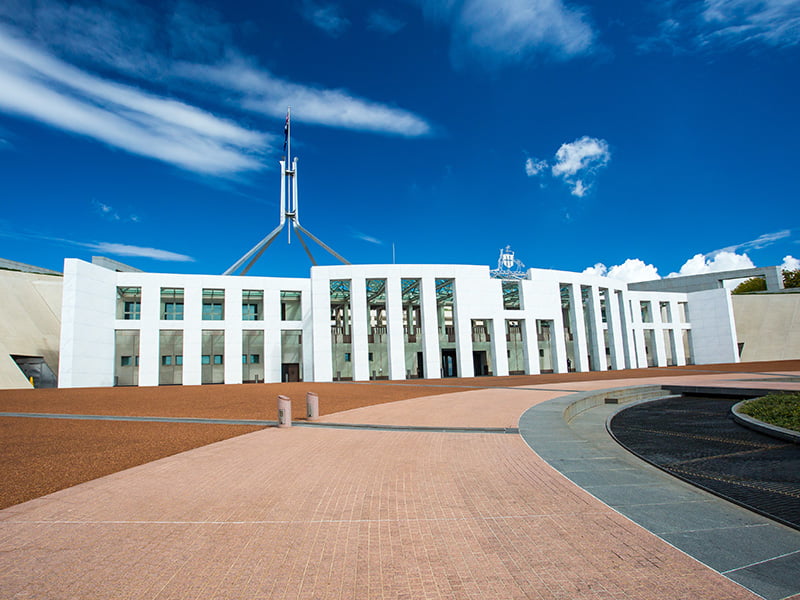A number of the largest grants from the federal government’s flagship $52 million program to support female founders will be reexamined after serious questions were raised about their eligibility for the scheme.
There has been growing frustration among a number of women entrepreneurs and founders who have been in contact with InnovationAus.com over the delivery of the Boosting Female Founders initiative. They claim that many companies receiving the Commonwealth support are not legitimately female founded and run, and that some are bending the rules to become eligible for the program.
The concerns centre on the assessment of the eligibility of applications to the program, which the Industry department has outsourced to a private consultancy.
According to members of the industry, some companies which have received funding under the scheme are not majority owned by women, aren’t run by women, or had updated their company structures to make them eligible for the scheme when the call for applications had opened.
The Industry department has now promised to have another look at the five largest grants handed out via Round 2 of the Boosting Female Founder program after these questions were raised by the Opposition at Senate Estimates last week.

The $52.2 million Boosting Female Founders scheme was announced in 2018 by the Coalition government under Malcolm Turnbull, although funding under the program was not offered until 2020. More than $23.5 million from the program has now been distributed to companies across two rounds.
The program is aimed at assisting female founders of startups to scale their businesses into domestic and global markets, offering grants of between $25,000 and $480,000 on a matched funding basis.
It requires applying companies to be majority owned and led by women, and for Round 2 of the scheme this meant that at least 51 per cent of the company had to be owned by women.
The second round, announced earlier this month by Industry Minister Angus Taylor, saw 38 companies receive a total of $11.6 million, with 2500 expressions of interest received for the round.
But there are claims that of the 10 largest grant recipients in this round, five are potentially questionable in meeting the scheme’s eligibility criteria. Specifically, there are questions about whether these companies are “owned and led” by women.
Labor senators raised a series of questions about the program with Industry officials at a Senate Estimates hearing last week.
The Industry department has outsourced the checking of companies’ eligibility for the program to Canberra consultancy Synergy, which ruled that 500 of the 2500 expressions of interest for Round 2 of the scheme were ineligible.
Labor Senator Louise Pratt raised allegations that three of the five largest grants under Round 2 of the Boosting Female Founders program were awarded to companies with a male chief executive, or which weren’t eligible for the funding according to ASIC documents.
These documents were checked by the department, AusIndustry head of division Emma Greenwood said.
“There’s been some general comment in the media where others have complained that they’re not female-owned. We’ve gone back and checked those we’re aware of and we’ve established the information that we’ve had is correct,” Ms Greenwood told the senators.
“There are the declarations we are provided, and we also generally ask for a range of other information and we check the veracity of that against the registers which are available to us. I don’t believe we take everything at face value, we don’t just take the word of a business. We will look at it and try to establish it with the information we have to verify that.”
Industry department secretary David Fredericks pledged that his staff would have another look at the companies raised by Senator Pratt.
“I don’t know the businesses you’re talking about, we can take that away and do those checks and look at them,” Mr Fredericks said. “I remain confident on the outcome but I’m always wary and very grateful to receive further advice from you Senator, which we’ll check.”
Senator Pratt said she was very concerned that funding from the program wasn’t actually going to women-led and owned companies.
“I would be very disappointed if indeed we’ve got male-led companies trying to get their hands on this money, which has been promoted as to support women setting up businesses, particularly in what is a very competitive economic environment where women’s businesses deserve the support they’ve been promised,” she said.
As part of the application process, applicants must provide a signed declaration that the startup is female-founded, and certify that it will remain so for the duration of the grant.
The application process is run across two stages, with companies first submitting an expression of interest, and selected firms then picked to provide a more detailed stage 2 application.
A spokesperson for the department said the scheme has a “rigorous assessment process”, with Synergy’s check followed by “additional checks” by department officials.
The applications are then vetted by an independent assessment committee of experienced women entrepreneurs, who select those which will proceed to stage 2. The independent assessment committee was chaired by Professor Jana Matthews of the University of South Australia, but the Industry department has never disclosed the rest of the membership of that committee.
In Round 2 following Synergy’s checks and the committee’s analysis, the 2500 expressions of interest were whittled down to 150 applicants who were invited to submit a detailed grant application.
These applications were then re-assessed by the same committee, which made final recommendations on what companies should receive funding.
“The initiative has been heavily oversubscribed since it launched,” an Industry department spokesperson told InnovationAus.
“The department works closely with the independent expert panel to ensure that the initiative is well targeted to boost women startups.”
Some of the issues also relate to companies which received funding under the initiative which are run by husband and wife teams, and difficulties in determining if they are actually eligible, female-led companies.
Do you know more? Contact James Riley via Email.

